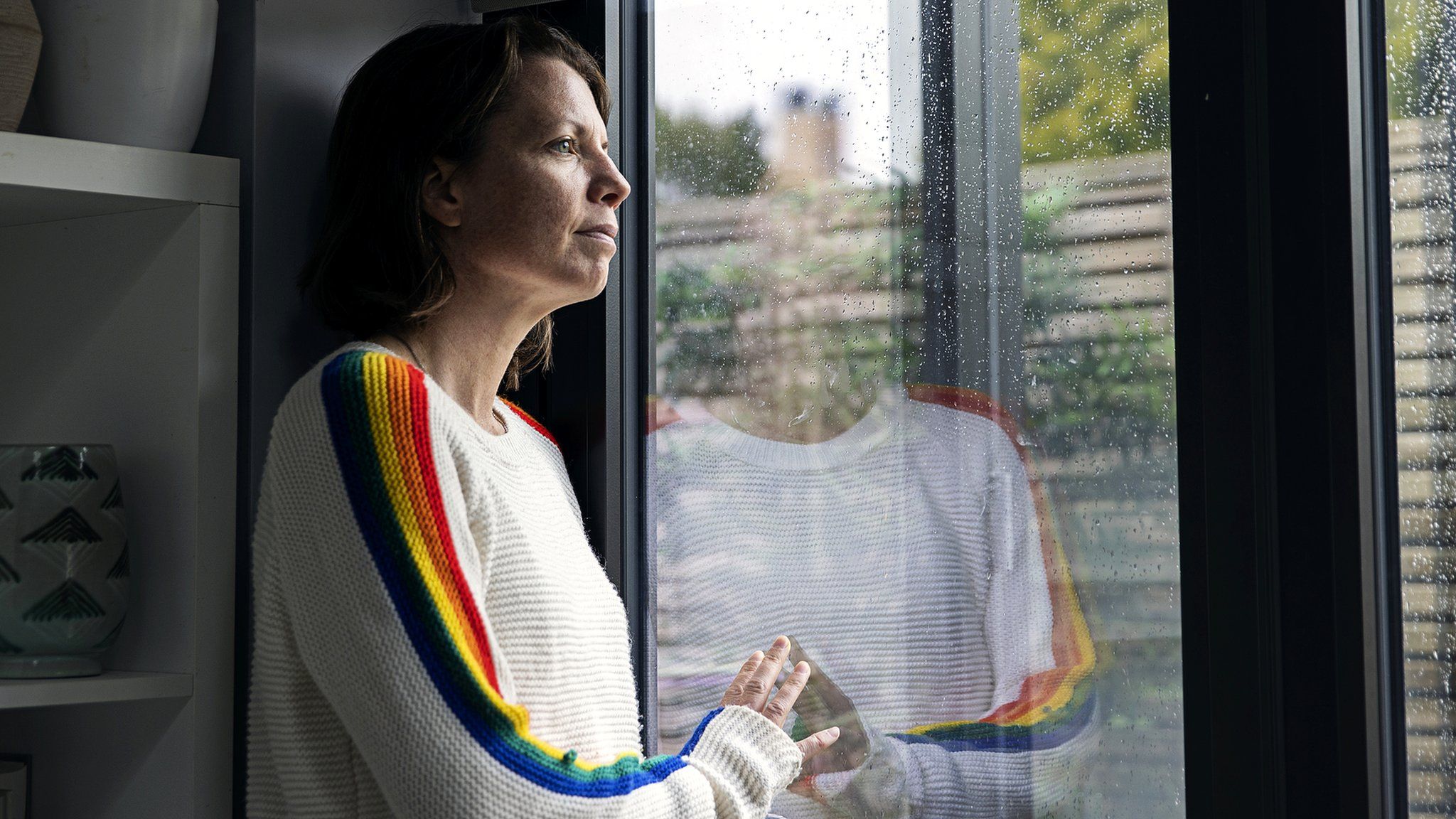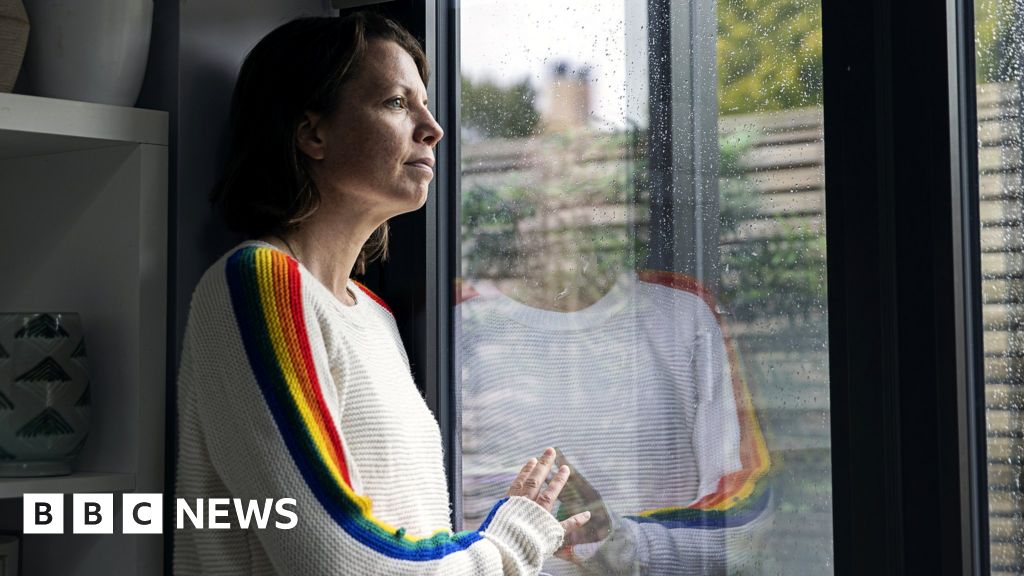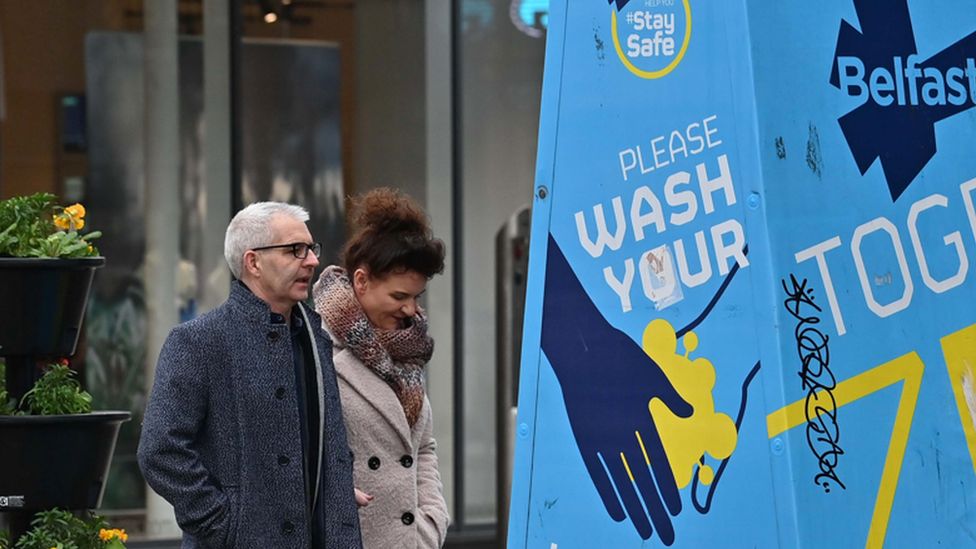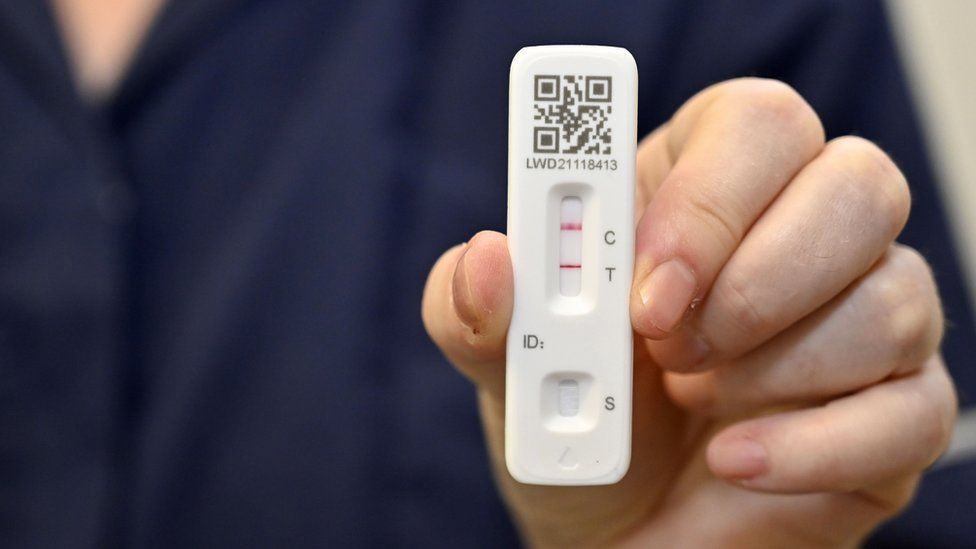
The legal requirement to self-isolate after catching Covid in England is expected to be dropped from next week – as part of a “living with Covid” plan.
All remaining virus restrictions in the country are set to end in the coming days, Downing Street said.
Currently, positive or symptomatic people must isolate for up to 10 days.
Prime Minister Boris Johnson said the vaccine had changed the outlook, but Labour warned against “declaring victory before the war is over”.
Some scientists and charities helping vulnerable people have also expressed concern at plans to lift restrictions while Covid infections are widespread.
Mr Johnson said the decision could be taken as a result of “strong protections against this virus over the past two years through the vaccine rollouts, tests, new treatments, and the best scientific understanding of what this virus can do”.
He said the UK was in a position to set out a plan for living with Covid “thanks to our successful vaccination programme and the sheer magnitude of people who have come forward to be jabbed”.
The PM first suggested all remaining Covid measures could end in England this month during a session of Prime Minister’s Questions on 9 February.
Infections across the UK are hovering around three million, according to estimates from the Office for National Statistics (ONS), down from a peak last month of over four million.
About one in 20 people in England had the infection in the week ending 12 February, according to the ONS.
About 91% of people in the UK aged 12 and over have had a first dose of the vaccine, 85% a second jab, and 66% a booster or a third dose.
As part of the planned lifting of restrictions next week, local authorities in England would become responsible for managing outbreaks using pre-existing powers.
Current coronavirus laws were due to expire on 24 March.
Community PCR testing, aimed at people with symptoms, was expected to stop under the new plan, although it remains unclear whether the distribution of lateral flow tests will be scaled back.
It comes after Armed Forces Minister James Heappey said on Thursday ending free lateral flow tests was “the direction of travel”.
The potential move was criticised by Wales’s health minister, who said “England alone” cannot decide to stop distributing the tests.
The ONS infection survey, which randomly tests a sample of the population, is also expected to be replaced with a slimmed down surveillance programme.

End to isolation orders would reflect change in Covid threat

Despite the huge number of Covid infections this winter, the overall numbers of deaths have remained in line with what we would normally see at this time of year.
That suggests Covid is no longer an exceptional threat so it is understandable the exceptional response taken to manage the virus should be reviewed. Covid will now have to compete with other spending priorities.
During the pandemic, £37bn has been set aside for testing and tracing. That is a huge sum – more than has been budgeted for GP care over the same period. It could, for example, make huge inroads into the hospital waiting list.
A big scaling back of testing is expected alongside the end of the isolation rule. Concerns will naturally be raised.
However, it is worth bearing in mind that whatever happens we are not going from 100% to 0%.
Only around half of people who are infected come forward for testing and so are never asked to isolate. Of those that do, a fifth admit to not adhering fully to the isolation guidance.
Leaving it to the public to exercise their judgement about when they should stay at home may not have as big an impact as assumed.

The expected changes in England highlight the different restrictions in place across the UK nations.
On Tuesday, all remaining Covid-19 restrictions in Northern Ireland stopped being legally binding. Wales is currently at alert level zero, its lowest level of Covid rules.
Scotland’s First Minister Nicola Sturgeon will update MSPs on the pandemic on Tuesday. The Scottish government has indicated it does not currently think it appropriate to stop the requirement to self-isolate.
Shadow health secretary Wes Streeting said: “Boris Johnson is declaring victory before the war is over, in an attempt to distract from the police knocking at his door.
“Labour doesn’t want to see restrictions in place any longer than they need to be.
“The government should publish the evidence behind this decision, so the public can have faith that it is being made in the national interest.”
Since the first Covid lockdown was announced in March 2020 with the order to “stay home” to protect the NHS, changing levels of restrictions on daily life have been in place across England.
The curbs have included the “rule of six” for indoor gatherings, regional tier systems, as well as so-called “Plan B” measures after the fast-spreading Omicron variant emerged.

At-a-glance: England’s changing Covid curbs

- March 2020: First national lockdown announced
- May to July 2020: Roadmap out of lockdown, leading to lifting of many, but not all, restrictions
- September to October 2020: Restrictions including the “rule of six” and regional tiers introduced
- November 2020: Second national lockdown, intended as a “firebreak” to slow a noticeable rise in hospital admissions
- December 2020: Tiered system returns with new tier four and specific guidelines covering Christmas
- January to March 2021: Third national lockdown
- March to July 2021: Roadmap out of lockdown., but this time with almost all measures removed
- December 2021 to February 2022: “Plan B” measures put in place in response to the Omicron variant


- GRAVITY DEFYING TRICKS: James Woods introduces possibly the greatest skier you’ve never heard of
- BOOST YOUR BRAIN: Find out how to banish brain fog with these free and simple steps

-
- 10 February



